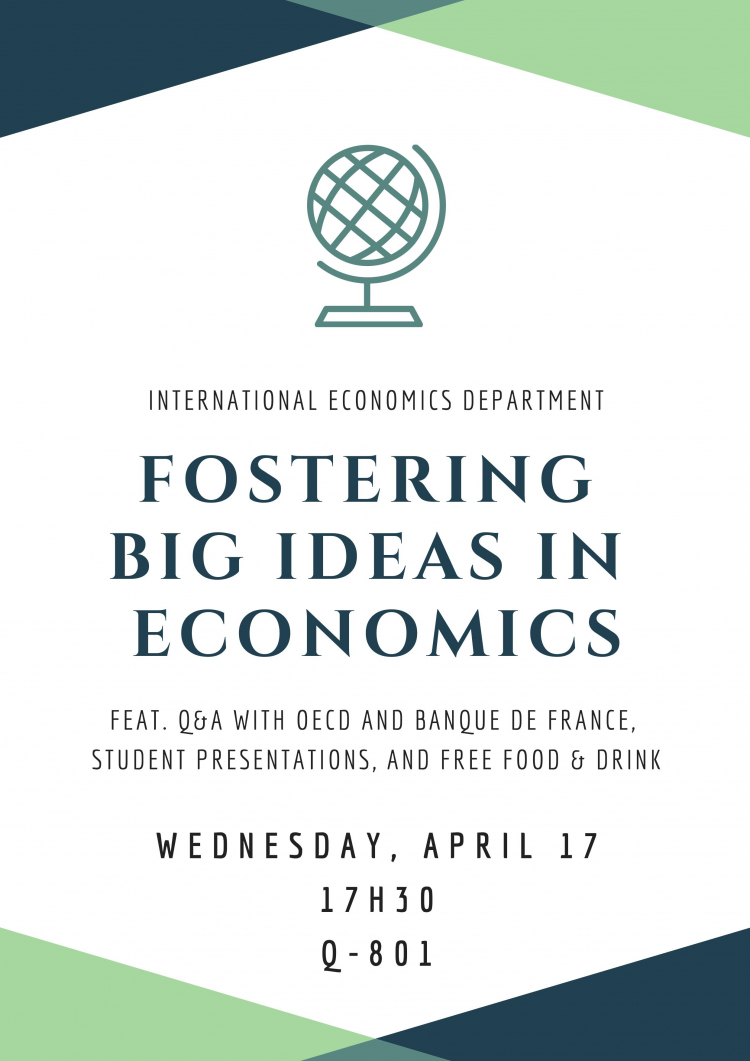AUP's First Econ Day

The first session of the event started with presentations held by senior students articulating how economics can be used as factors to map a country’s progress and the possibility for improvement in current international social issues. Topics such as the relation between urbanization and poverty in Africa, child poverty in Peru, child growth and nutrition causes in Egypt, armed conflicts in Latin America and mass shootings in the United States were passionately discussed.
Student presentation on Econ day. Image Credits: Anis Anghel
Mateo Galindo, student presenter in international economics shared, “It is so interesting to have professional speakers with distinctive backgrounds because it allows us to look at economics in a different way, it’s not just about numbers and GDP’s, both macro and micro levels of economics have to be considered.”
Q&A in the second session of Econ day. Image Credits: Anis Anghel
In the second session, the event unfolded into a Q & A with a distinguished panel formed of AUP faculty, OECD professionals, and Banque de France representatives. The main focus of the discussion was to provide students with information about the professional development opportunities possible with a degree in Economics.
The question of how education prepares students for the real world of economics was raised. The panel agreed that education provides students with the understanding of vital concepts and methodology, with research skills and the ability to efficiently communicate their ideas, in writing and through presentations. Sequentially, students will be able to apply these concepts in a national and international context, while collaborating with a team of professionals.
The different natures of the public and the private sector were discussed, and how individual inclinations dictate which of the sectors are best suited for a person. The organization and infrastructure of the public sector depends on other public institutions and legislation, whereas the private sector has an internal organization, which allows for more autonomy than in the public sector.
The panel shared personal experiences, including their different journeys on the career path and they gave precious advice to future aspiring economists. They highly encouraged students to pursue a master’s degree and to take any opportunity to accumulate professional experience.
Group picture of the panel and student presenters. Image Credits: Anis Anghel
Member of the discussion panel and AUP professor in economics, Peter Bent, said, “I think this was a great opportunity for senior students to present their research to younger students, and to make economics more real. It was cool to see students engaging in such varied project topics. The second part of the event was more of a career/ graduate-school discussion, and it was very interesting to hear the unconventional career paths of the panel members. They studied a range of things at different levels, in the public or private sector before having their current positions and I think it was helpful and inspiring for students to see that they do not need to have their whole futures planned out today, and see where their interests are going to take them.”










